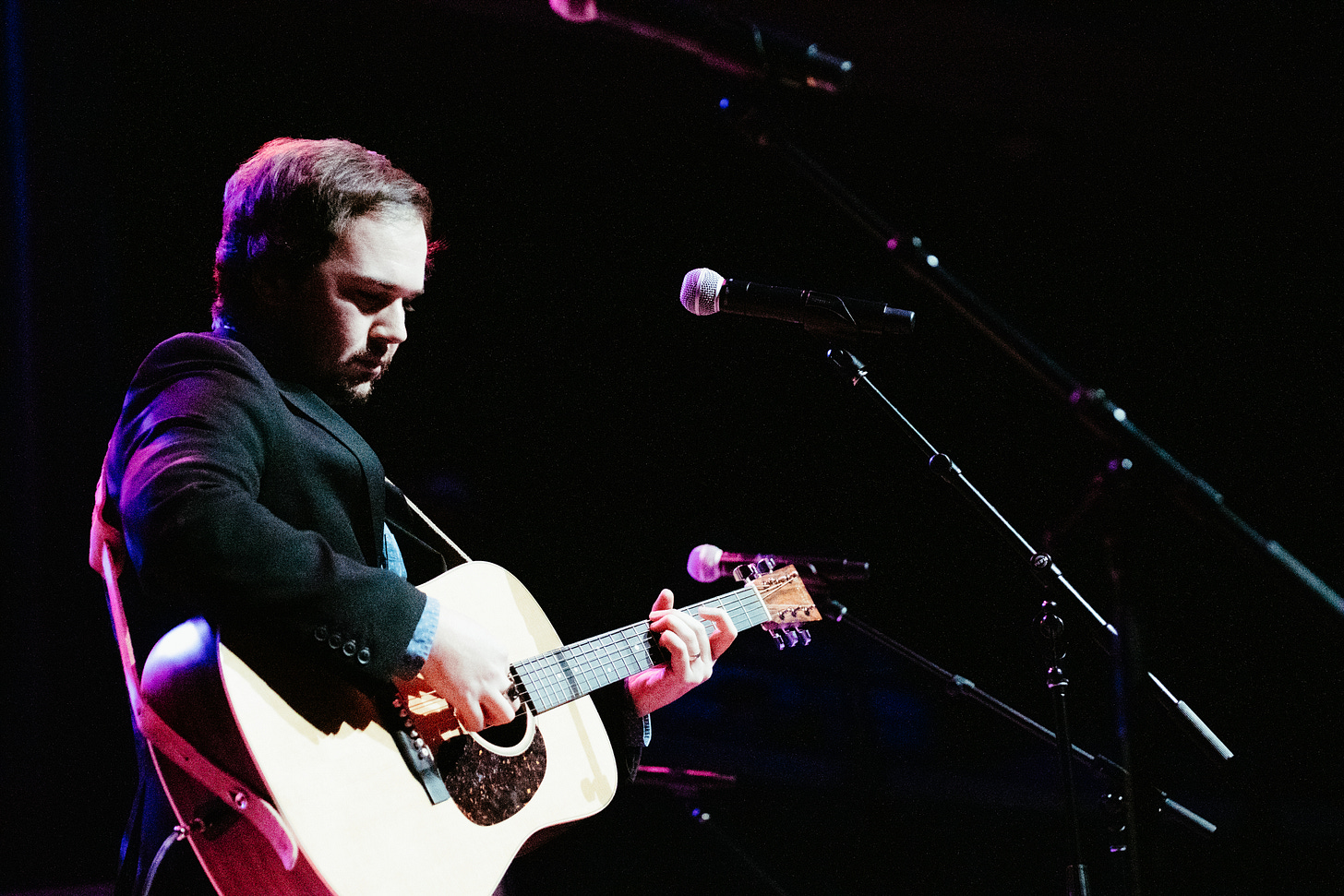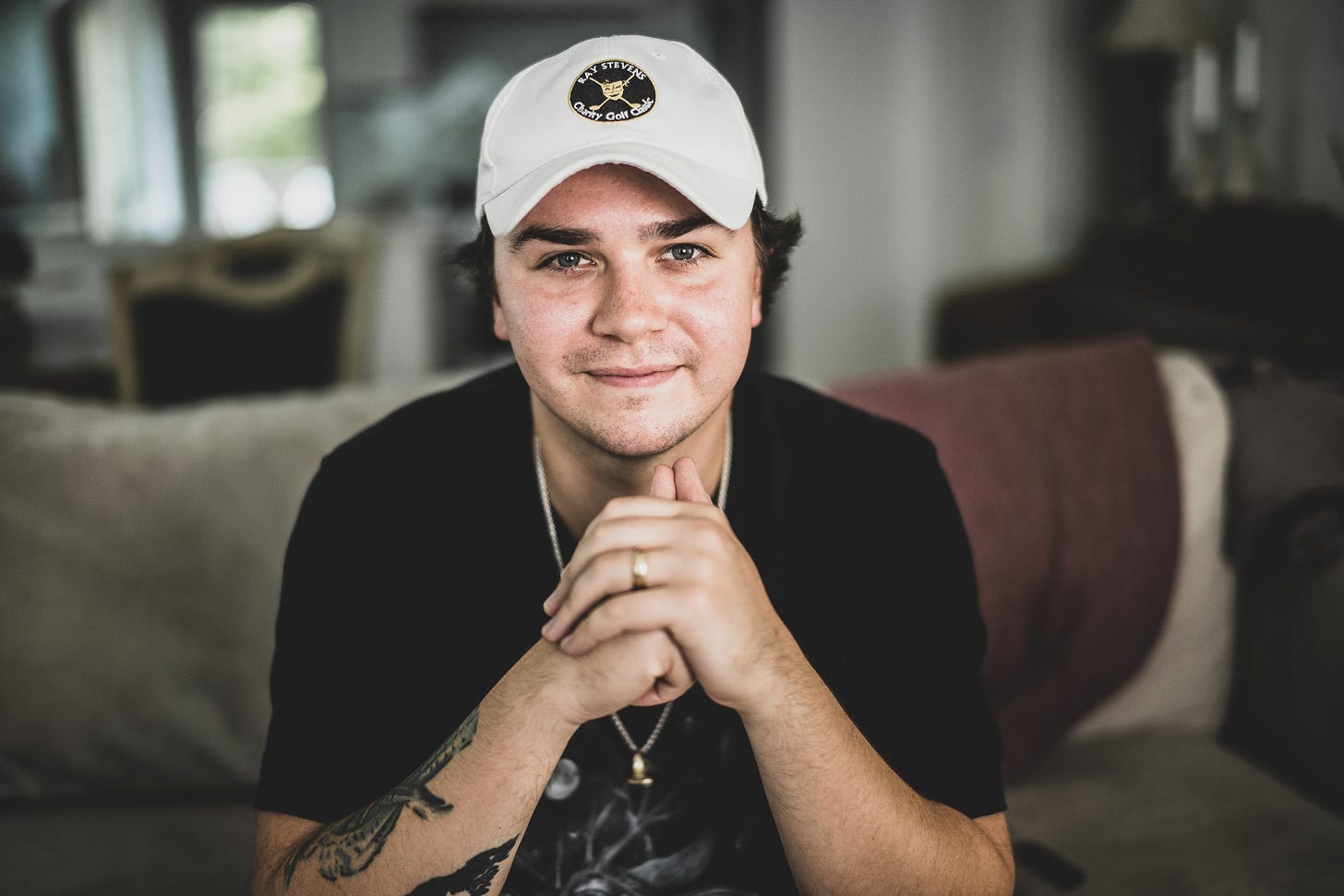Tommy Prine, son of late folk legend John Prine, on grieving his dad and following in his footsteps
Plus: His secret, very non-folk musical influences growing up, what he thinks growing diversity means for country music, and why he refuses to hide his own politics
It was one of those nights.
Some weeks ago, my family was in Nashville. Listening to music was at the heart of our agenda. And somehow I came upon a listing of an extraordinary event: a multi-day, multi-venue tribute to the late legendary folk singer John Prine, all of Nashville finally getting to say a true goodbye, deferred by the very virus that stole Prine in 2020.
It was a magical night at City Winery. We got to see Leslie Jordan, the comedian, perform very shortly before he passed. But the most moving moment of the night came when Prine’s youngest son, Tommy Prine, came up and performed. What he told the crowd that night was that he had, at last, chosen to move music from the sidelines of his working life to the very center. He was coming out into the world as a singer-songwriter in his own right. He was doing the daunting thing of following his dad.
And, boy, how he sang.
I wanted to talk to him after that performance. So today — with my book tour finally behind me and The Ink revving back up — I’m thrilled to bring you this interview.
If you haven’t yet, take a moment to subscribe to The Ink to unlock these posts.
“The music is getting better, and I think we all know why. It's because we're hearing more people” : a conversation with Tommy Prine
I wanted to ask about your song “Ships in the Harbor.” I imagine it’s a difficult task to write a song as part of your own process of grieving, while also trying to step out on your own and make your voice heard. What was it like to write that song?
It was one of those things where I believed that song was already written somewhere in the cosmos or wherever, and I was just the vessel that it came through. Because it took me about 15 minutes to write it. I've heard this from many songwriters, too, that there will be songs where it doesn't even feel like you're writing it. It just feels like it's all coming out. I didn't know what it was about until I was almost done with it. Then the line about my dad fell out of me, and I thought, That's why I'm feeling so emotional while I'm writing this.
Songwriting is an extraordinarily cathartic process for me. I find it easier to write about how I'm feeling and processing emotions rather than actually talking about them. It was a heavy place to go to, but I think it's important to go to those places because I feel like I'm better off after writing that song.
What struck me in the song was these lines talking about different people and things leaving, followed by this almost parenthetical reference, "as it should,” “as they should,” “like they do.” You're talking about the pain of things and people leaving, but you're also standing up for the idea that things must leave, that it's the job of things to leave. Were you trying to convince yourself of that?
It's one of those lessons about the human experience that we all know and understand. But when it comes time to accept it, it's a whole different process. We all know that we're going to die one day. We all know that summer only lasts for three months. We all know that a car eventually is going to run down and you can't use it anymore.
But when it comes to having to let go and accept that this person has passed and they're not with us anymore, there's always that moment of facing the thing that you already knew — and it feels a lot harder than you expected. That's where I was at with "Ships in the Harbor." I understood that all good things and all bad things come to pass because everything has to at some point. But it's a lot harder to accept in the moment. It was almost a reminder to me that this is, unfortunately, a normal part of life.
Tell me about your origin story as a person, as a son, and as a musician. I was listening to a great interview with your dad from several years ago in which he talked about Western Kentucky, Chicago, and Nashville and how these different worlds shaped him. What is your version of that origin story as someone who grew up in a legendary musical home?





